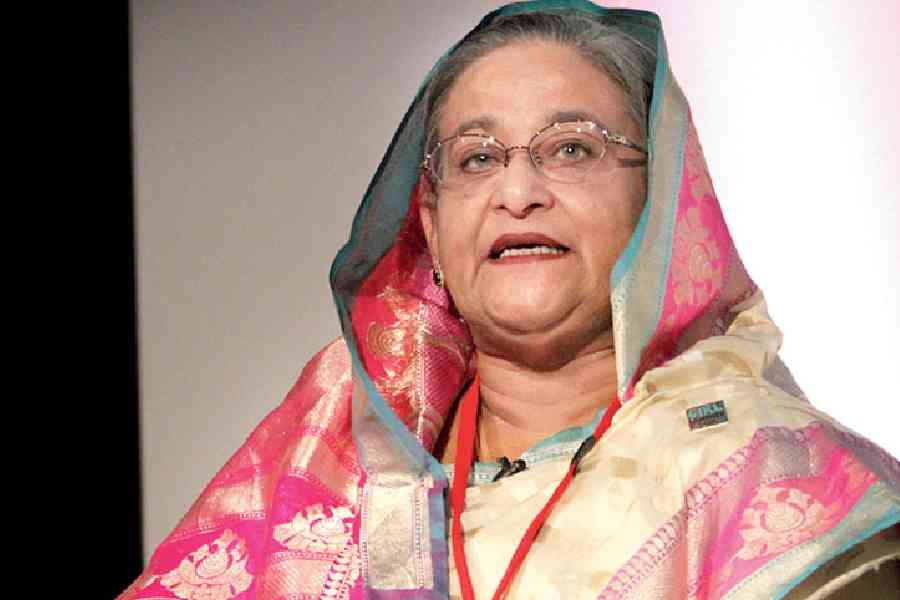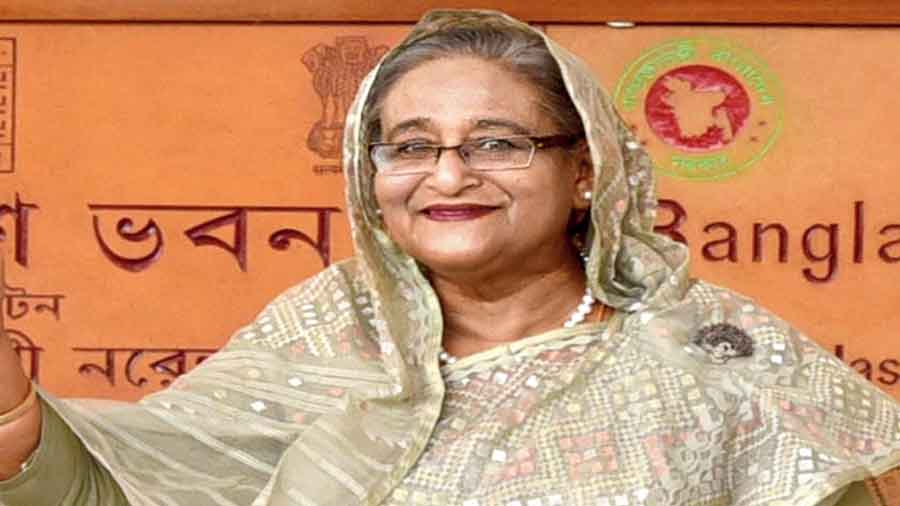Bangladesh Prime Minister Sheikh Hasina on Friday underscored the country’s guiding foreign policy principle of “friendship to all and malice towards none” and stressed “partnerships and collective efforts” to achieve peace and prosperity in the Indian Ocean region.
Her comments — at the inauguration of the sixth edition of the Indian Ocean Conference in Dhaka, organised by think-tank India Foundation in association with the Bangladesh foreign ministry — were a reaffirmation of Dhaka’s foreign policy position of non-alignment.
To many, Dhaka’s non-aligned policy is too ambivalent for Washington’s and New Delhi’s liking at a time they want to curb China’s influence in the Indo-Pacific.
Hasina’s comments therefore appeared significant, coming as they did within half an hour of Indian foreign minister S. Jaishankar heaping praise on Bangladesh for its Indo-Pacific Outlook document, released on April 24.
A source in Dhaka said Hasina had tried a “balancing act” — trying to undo any possible annoyance the Indo-Pacific Outlook may have caused China — by stressing a non-alignment policy at a conference attended by senior politicians from India, Japan, the US and Australia. China is not attending the conference.
“In his famous United Nations speech of 1974, Father of the Nation Sheikh Mujibur Rahman spoke about our foreign policy dictum: friendship to all and malice towards none,” Hasina said.
“This is relevant for Bangladesh in the Indian Ocean region as the country endeavors to formulate actions for a resilient future, peace and prosperity through partnerships and collective efforts.’
Jaishankar had in his keynote address at the inaugural session said: “Bangladesh joined a number of countries ranging from Asean and East Asia to Europe and North America in articulating its thinking on this important subject.
“(The) Indo-Pacific is a reality and becoming more so with each passing day. It is a statement of our contemporary globalisation.... I am truly glad that Bangladesh has joined the company of those who have done so.”
China’s rise as an economic, political and military powerhouse has led to concerns over the freedom of navigation and free flow of trade through the Indo-Pacific — around 60 per cent of the global trade volume — and resulted in intense competition between the US and China.
The US, India and countries such as Japan and Australia have therefore been keen on taking Bangladesh on board at a time their Indo-Pacific strategy is directed at countering China’s growing influence in the region.
Hasina’s comments at the conference have made it clear that she would not let either Washington or New Delhi dictate Dhaka’s foreign policy position.
“Bangladesh wants to maintain a degree of autonomy in its foreign policy, security policy and economic policy choices, and we are always on the side of peace — that’s what the PM’s speech captures,” said Shamsher Mobin Chowdhury, former foreign secretary of Bangladesh.
This position is also at the nucleus of Dhaka’s Indo-Pacific Outlook, which tries to “balance the present concerns” and “hedge against future developments”, a retired Indian diplomat said.
Hasina has always nurtured her special equations with New Delhi, but Bangladesh’s heavy indebtedness to Beijing for various infrastructure-related investments makes it dependent on China.
Jaishankar took no names but tried to caution Dhaka about the pitfalls of Chinese loans by referring to some recent examples from the region (Sri Lanka).
Although the Bangladesh government has rebutted suggestions that it’s caught in a Chinese debt trap, the country is part of China’s Belt and Road Initiative and is heavily indebted to Beijing.
“Decoupling from China is difficult not only because of indebtedness, we are largely dependent on them for military equipment supplies and maintenance,” a source in Dhaka said. “Hasina’s attempt at a balancing act is the best possible strategy for us.”











